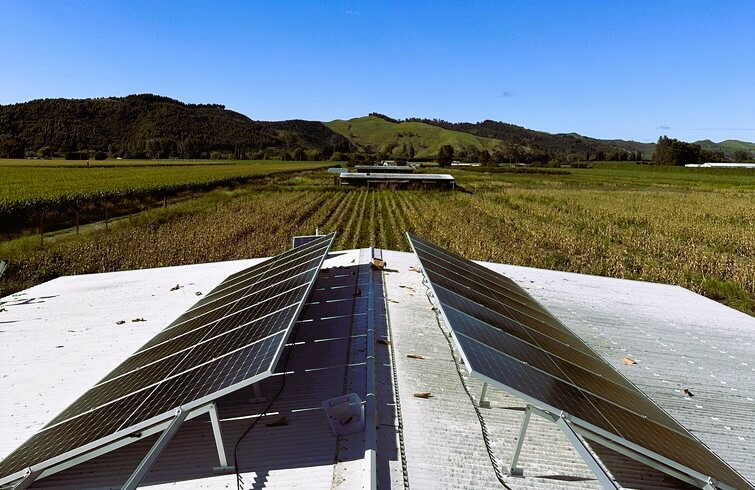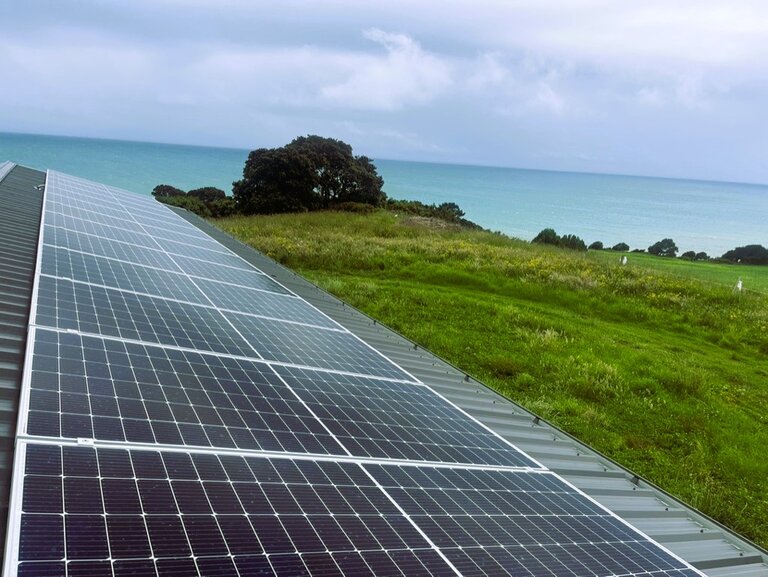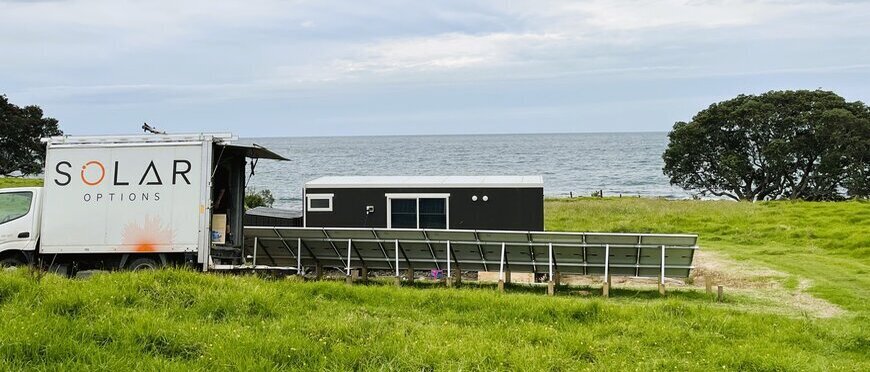There has been a steady rise over the past decade in off-grid solar systems here in New Zealand, a rise boosted by the pandemic. But as things return to normal, interest in solar panels has increased, not decreased. Read on to discover why off-grid solar systems are more popular than ever.
What are off-grid solar systems?
Off-grid solar systems, also known as standalone solar systems, generate electricity using solar panels, but are not connected to the traditional power grid.
Typically, solar panels on homes are still hooked up to the national grid, and if they don’t generate enough electricity, your home can use regular power lines like everyone else. Or conversely, if they generate too much energy, it gets sent back into the grid, and you get a rebate on your tariff.
An off-grid system is exactly what it sounds like – completely detached from the rest of the country’s electricity. You generate, convert and store your electricity.
How do off-grid solar systems work?
They come in three main parts, each with its own specific purpose.
- Solar panels: These capture sunlight and transform it into DC electricity.
- Solar inverters: Inverters take the raw DC electricity generated by the panels and transform it into appliance-friendly AC current.
- Solar battery: This saves any surplus electricity your panels have generated to be used at a later time.

Why are they becoming more popular?
The explosion in interest in off-grid systems may have many reasons, but the main three are as follows:
More affordable
The simple reason more people are buying off-grid systems is that they can afford to. The cost of solar panels has dropped by more than 80% since 2010, making it easier for many people to invest in solar power systems.
As well as becoming more affordable, they are also more efficient, meaning the return on investment is much sooner than it was. A mid-range solar system will usually pay for itself within five years, meaning all your electricity after that is 100% free!
Self-sufficiency and independence
As the pandemic showed us, you never know what’s around the corner. We can’t predict when or where there will be a major earthquake, but we can be ready for it.
By generating their own power, homeowners and businesses can be less reliant on traditional power companies and the national grid, giving a sense of independence and self-sufficiency.
This is especially important for people in remote areas or places with unreliable grids. Knowing you can still keep the lights on during a crisis is priceless.
Impact on the environment
There is an effort now, like never before, to be more environmentally conscious, particularly with younger generations.
Australia and New Zealand have the world’s highest growth rate of renewable energy, with thousands of people installing solar panels every week.
Solar energy is free, clean and abundant.
There are no toxic side effects and no harmful by-products. As people change their lifestyles to become more sustainable, solar panels are an easy – and obvious – choice.

We can help set up your off-grid solar system
If you are interested in setting up an off-grid solar system in New Zealand, talk to us.
We have years of experience in all things solar, from small residential systems to large commercial setups. Solar Options founder, Gerry Magner, has been involved in implementing and delivering solar solutions on projects in Australia, Ireland and New Zealand.
And he practices what he preaches. For almost 20 years, Gerry and his wife Simone have lived entirely off the grid, raising their two children in an eco-friendly, hi-spec, self-built home on an island in Ohiwa Harbour.
Their off-grid system generates all their power, including hot water, for their entire home and family of four.
Of course, you don’t have to live on an island in the middle of a harbour to be off-grid! No matter where you are, you can be self-reliant with your electricity.
Contact us today for a friendly chat, and we can take you through your options when it comes to off-grid solar systems.



